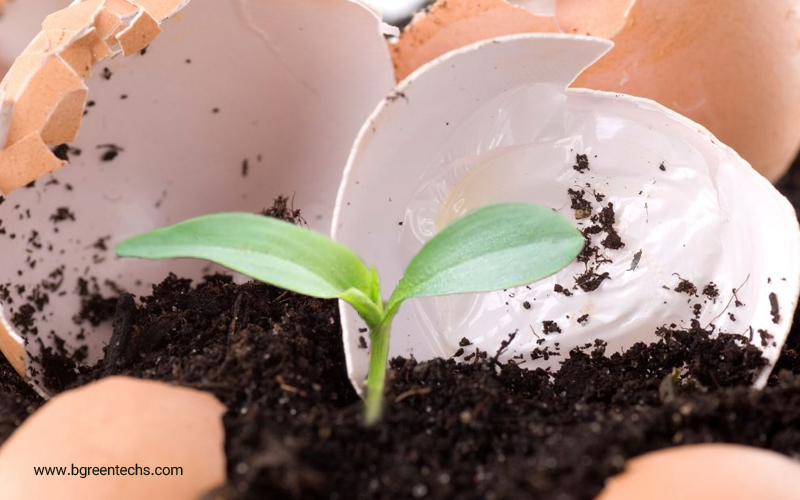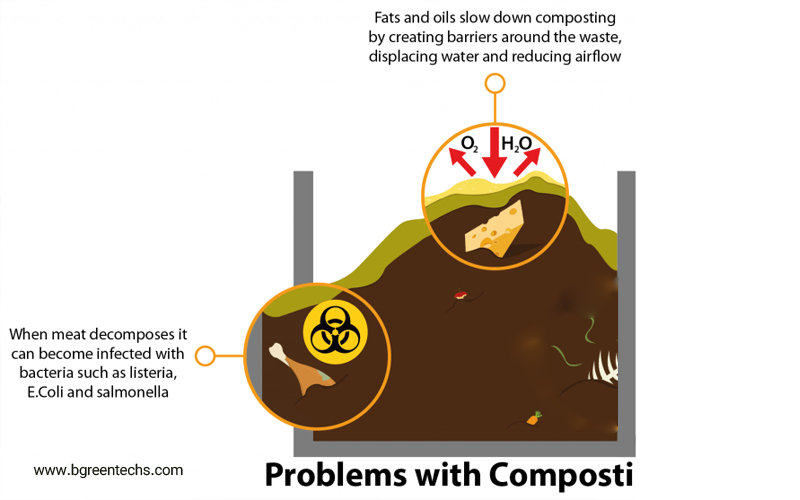The benefits of composting are countless. Composting is an eco-friendly approach to decrease trash and produce fertile soil for farming and gardening. While many people are aware that garden waste, such as leaves and grass clippings, may be composted, there is frequently a misunderstanding over whether or not all kinds of food waste can be composted. We will examine the many kinds of food waste that may be composted or not in this article and offer some advice on how to compost them successfully.
What Types of Food Can Be Composted?
Below are some of the most important food that can be composted and other food that are not compostable:
Fruit and Vegetable Scraps
Fruit and vegetable scraps are one of the most important types of food waste for composting. Peels, cores and any other fruit or vegetable components that are not eaten fall under this category. These wastes are nutrient-rich and compost quickly breaks them down. Onions and citrus peels should not be added to the compost pile, though, since they can be acidic and take more time to break down. So, composting fruit and vegetables is critical.
Coffee Grounds and Tea Bags
Tea bags and coffee grounds are also great compost pile additions. Since they contain a lot of nitrogen, the breakdown process moves forward more quickly. Additionally, the addition of coffee grinds to the soil increases its organic content and water-holding ability. Make sure to take out any staples or glue before adding coffee grounds or tea bags to the compost pile.
Eggshells
Additionally compostable are eggshells. They provide a lot of calcium, which is helpful for plants. For composting eggshells, they should be broken before being put into the compost pile to speed up their decomposition. Additionally, breaking them up into little pieces may lessen the chance of pests being drawn to the compost pile.
Bread and Grains
Although they can be composted, bread and cereals should only be used sparingly. If used in significant amounts, these substances might draw pests since they decompose slowly. Before putting bread into the compost pile, it is better to break it up or shred it into little pieces. If you have a lot of old bread or grains, instead of composting them, think about feeding them to backyard birds.
Dairy Products and Meat
Some types of food waste cannot be composted, despite the majority of it being able to. For instance, can meat be composted? Well, you shouldn’t put meat or dairy products in the compost. Both the smell and the vermin they attract can be unpleasant. These goods’ high-fat content can also impede decomposition and reduce the compost pile’s effectiveness. Dairy products and leftover meat should either be thrown out in the usual garbage or used in other ways, such as in broth.
Tips for Composting Food Waste
It’s crucial to go by a few crucial guidelines for the composting of waste regarding food efficiently:
– In order to maintain a healthy carbon-to-nitrogen ratio, it’s crucial to mix in carbon-rich materials like shredded paper or dry leaves to offset the high nitrogen content of food waste. As a general rule, aim for a carbon-to-nitrogen ratio of about 3 to 1.
– Chop or shred huge food waste to speed up decomposition and keep pests away from the compost pile. The breakdown process will go more quickly if bulk food waste is broken down into little bits.
– The decomposition process is sped up by turning the compost pile frequently to aerate it. Make an effort to turn the pile once every several weeks to ensure that all the items are decomposing equally.
Conclusion
In conclusion, a variety of food waste, such as leftover fruit and vegetables, eggshells, coffee tea bags, grounds and bread, may be composted successfully. These things help cut down on trash while giving plants essential nutrients. Dairy and meat items should be kept out of the compost pile since they might draw pests and impede the decomposition process. Anyone may convert their food waste into soil that’s rich in nutrients for their gardens or vegetation by following a few straightforward composting methods.



